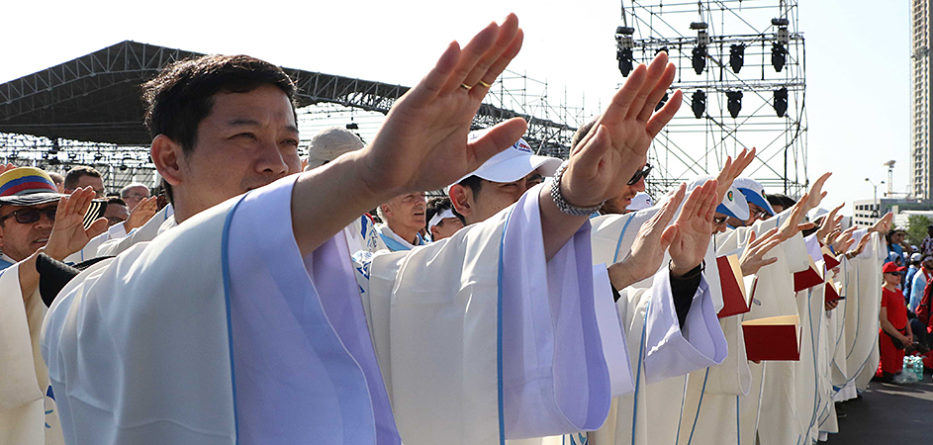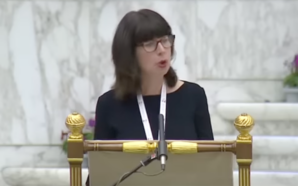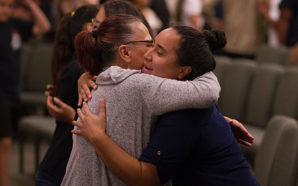In a video message sent on Aug. 13 to the religious orders of Latin America, Pope Francis touched on a theme dear to his heart: the inseparability of evangelization and inculturation. But he also discreetly offered an insight that may help explain why in July he chose to restrict and regulate the pre-Vatican II liturgy, which has increasingly become an instrument of division within the church.
“Let us not forget that a faith that is not inculturated is not authentic,” Francis told the Latin American Confederation of Religious (C.L.A.R.). He then invited them to enter into the “soul of the peoples,” which, he said, was what gave “true meaning” to culture. To do so, he said, was to value what the Holy Spirit has sown in every person, which is at the same time a gift for all. “Do not forget the binomial: inculturation of faith and evangelization of culture,” he urged.
“Inculturation” is a term that took off in the 1980s, especially in Latin America, to express an insight that developed in the wake of the Second Vatican Council. Although St. Paul VI never used the term, it is implicit in his 1975 apostolic exhortation “Evangelii Nuntiandi,”especially paragraphs 20 and 48, which made clear that the proclamation of the Gospel builds up a culture and regenerates it; it does not quash culture or replace it. And evangelization further involves a kind of discernment of the presence of the Spirit in the beliefs of “the simple and poor,” who were for a long time despised but were now being rediscovered as a repository of the divine.
“The church is a people of many faces,” Francis says in our book Let Us Dream, “called to be the People of God within a history, in a concrete place, in the language of that place.”
This is what the current weaponization of the Traditional Latin Mass against both Vatican II and papal authority rejects. Francis appears to discern in it a resurgence of the ancient gnostic heresy, which turns Christianity into a discarnate ideology abstracted from the fleshy reality of human culture. Rather than a true spiritual unity forged from diversity, it creates a universal ideology. “The enemy wants diversity to become opposition and so he makes them become ideologies,” the pope warned this year during his homily on Pentecost.
To continue reading this article, click here.
Austen Ivereigh is a Fellow in Contemporary Church History at Campion Hall, at the University of Oxford. His latest book is Wounded Shepherd: Pope Francis’s Struggle to Convert the Catholic Church, published by Henry Holt.
With thanks to America and Austen Ivereigh, where this article originally appeared.








